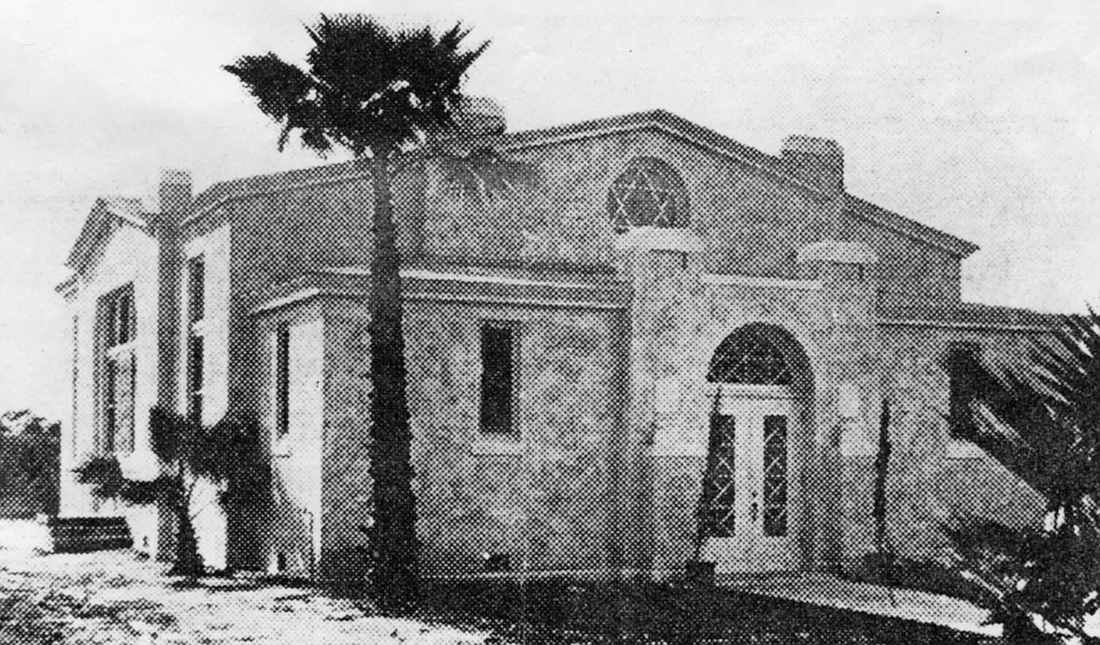- November 23, 2024
-
-
Loading

Loading

Temple Beth Sholom’s roots in Sarasota go deep.
Just as Sarasota was incorporating into a city, its first Jewish resident arrived. Historical records say Philip Levy and his wife, Cecelia, opened a womenswear store in 1913, ushering in a new sector of the local business community.
“Philip Levy had a store at the bottom of Main. None of them (congregation members) were professional people. They were all in business,” Eric Faerber said. Faerber has become something of a temple historian as it prepares to celebrate its 90th anniversary.
By the 1920s, the Jewish community had grown. Twenty five of its members established the Jewish Community Center in 1925.
That planted a seed — the possibility of a place of their own.
Two years later, that seed grew into the first synagogue in Sarasota. Levy, along with Sarasota resident Joseph Idelson, and four others led fundraising efforts.
“Some of the local builders donated supplies and did all kinds of money raising schemes,” Faerber said.
The men found favor in a high-profile resident — John Ringling. He was the largest single donor to the temple located on Washington and Sixth Street. It was finished in 1928.
From inside its walls, the members of Temple Beth Sholom weathered hurricanes, the Great Depression and World War II.
While they weathered those storms, they were sheltered from others.
“There is always anti-Semitism breeding everywhere. It seems it doesn’t go away. As assimilated and integrated as Jewish people are to the community and the nation, there are still people out there that don’t like us,” said Ed Kalin, the longest continuous member of the temple.
In the 1960s, swastikas were drawn on the temple walls, but the members of Temple Beth Sholom were largely removed from the widespread anti-Semitism that wrought destruction in other parts of the world.
“I didn’t feel it,” Kalin said. “I never felt it.”
Kalin joined the congregation in 1950, but he wasn’t the only addition. Sarasota grew from a sleepy town of fewer than 19,000 residents to a burgeoning coastal city of 34,000 by the end of decade.
Over the following two decades, the congregation built a campus on the land at the northwest corner of Tuttle Avenue and Bahia Vista Street, including an education center and a synagogue.
“I can’t think of a major Jewish organization in the community that doesn’t have a decent representation of leadership and participation from Temple Beth Sholom,” Rabbi Michael Werbow said.
As the temple prepares to celebrate its past, it also grapples with present challenges. Under Werbow’s care, the temple has become more inclusive, allowing non-Jewish family members to participate in parts of the service.
“I think that if the synagogue is going to be successful ... it needs to embrace these interfaith families,” Temple Beth Sholom co-president Rob Katz said.
Katz has been a congregant at Temple Beth Sholom for more than 40 years and remembers when women were allowed to read from the Torah and music was introduced into the service.
As for the temple’s future, he believes it’s in good hands.
“I have never worked with an individual that is as open as (Werbow) — open to really just about anything, really listens first and never passes judgment,” Katz said. “To me, that’s an atmosphere that creates the warmth that we have here.”